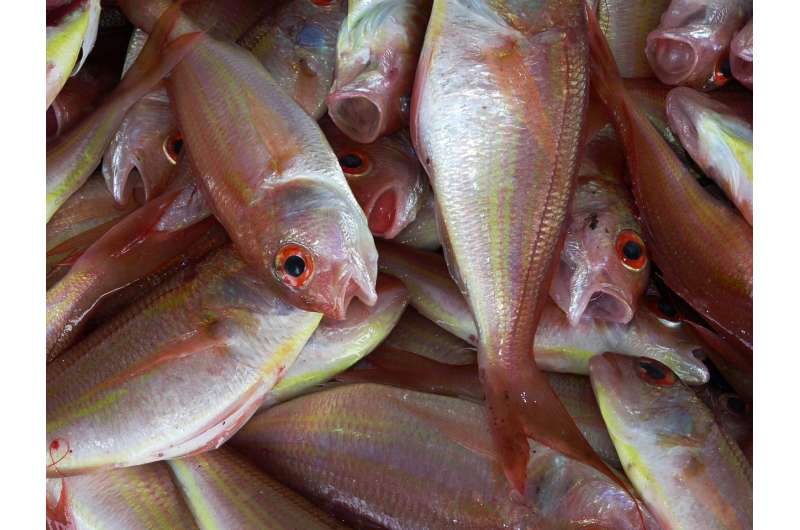This article has been reviewed according to Science X's editorial process and policies. Editors have highlighted the following attributes while ensuring the content's credibility:
fact-checked
trusted source
proofread
Seafood industry resists push to reel in traceable wild fish: Study

Seafood giants are resisting the push to use technology to trace wild seafood and clean up the industry as it may bite into their profits, a Monash University report reveals.
The article published in the journal Technology in Society found an oligopoly of big seafood wholesalers and fish markets are reluctant to use traceability technologies, as a way of avoiding closer scrutiny on their supply chain practices.
Lead researcher Dr. Benjamin Thompson said the use of digital technologies, including blockchain, would improve the integrity and sustainability of the seafood supply chain by disclosing more information about where and how seafood is caught, and its journey from ocean to plate.
"The origin of most seafood is untraceable—meaning it may have been caught illegally or unsustainably, and this poses a significant risk to marine biodiversity and the sustainability of the seafood industry," Dr. Thompson said.
Dr. Thompson said it was clear from the research that a powerful group of actors at the center of the supply chain are keen to maintain a culture of confidentiality regarding trade, price and product information.
This oligopoly reduces the power of fishers who have to accept the prices set by wholesalers rather than determining their own prices based on market demand and availability, he said.
Despite Australian fisheries being considered sustainably managed, the study found that non-wholesalers, including some chefs, suspected wholesalers of mislabeling and engaging in food fraud.
"The research suggests that this oligopoly intentionally reduces transparency and traceability to mask unethical and unsustainable behavior," Dr. Thompson said.
"Yet those wanting to see improved practices—such as fishers and seafood restaurant owners—are reluctant to embrace blockchain platforms themselves because they anticipate a backlash from the wholesalers upon which their sales and procurement currently rely."
The study focused on the Victorian and NSW markets and involved 24 research interviews with those deeply embedded within Australia's seafood sector, from fishers and aquaculture companies to seafood restaurants and regulators.
More information: Benjamin S. Thompson et al, Blocking blockchain: Examining the social, cultural, and institutional factors causing innovation resistance to digital technology in seafood supply chains, Technology in Society (2023). DOI: 10.1016/j.techsoc.2023.102235
Provided by Monash University





















